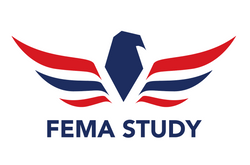
Navigating the aftermath of a disaster can be overwhelming, especially when it comes to understanding what kind of assistance you may be eligible for. FEMA (Federal Emergency Management Agency) provides disaster assistance to support recovery, but who exactly qualifies for this help? In this blog, we’ll break down the eligibility criteria for FEMA disaster assistance, offering you a clear, simple, and engaging explanation.
Understanding FEMA Disaster Assistance
FEMA disaster assistance is a cornerstone support for those hit by natural and man-made disasters. This assistance covers a wide range of aid, from temporary housing support to low-cost loans for repairing homes. However, understanding the basics of this assistance is the first step in navigating the road to recovery.
One key thing to note is that FEMA disaster assistance doesn’t replace insurance coverage. Instead, it serves as aid to meet basic needs not covered by insurance. This is an essential factor to consider when evaluating your eligibility for FEMA support.
Criteria for Individual Assistance
To be eligible for individual assistance, you must live in an area declared as a disaster zone by the President. This is the first and foremost requirement. Without a presidential disaster declaration, FEMA assistance cannot be deployed.
Your need for assistance must also be related directly to the disaster. This includes damages to your property, loss of essential services, or other immediate needs that arise as a direct result of the disaster’s impact. Dealing with these can be challenging, but FEMA’s individual assistance is designed to help bridge that gap.
Requirements for Property Owners and Renters
Property owners and renters have slightly different paths to FEMA assistance. Owners need to demonstrate that their primary residence has been affected, while renters must prove their living space is no longer habitable due to the disaster.
Another critical requirement is that you must apply for FEMA assistance. Simply put, assistance won’t automatically come to you. Filling out an application with accurate information about your situation is crucial to determine the type and amount of aid you may receive.
Special Considerations for Businesses and Non-Profits
Businesses and non-profits face unique challenges in the wake of disasters. While FEMA’s primary mission is to assist individuals and households, there are programs designed to help businesses and non-profits recover. For instance, the Small Business Administration (SBA) works closely with FEMA to provide loans to help repair or replace damaged property.
Documentation Needed to Apply
When applying for FEMA disaster assistance, the documentation you provide is your key to receiving aid. You’ll need to show proof of identity, ownership or rental agreements for damaged property, and any insurance documents related to your claim.
Keeping well-organized records can significantly expedite the process. In the chaotic aftermath of a disaster, having quick access to these documents can make all the difference in how swiftly you receive assistance.
How to Apply for FEMA Disaster Assistance
Applying for FEMA disaster assistance is a critical step in the recovery process. You can apply online, via phone, or through the FEMA app. Whichever method you choose, it’s important to apply as soon as your area has been declared a disaster zone to ensure a timely response.
When applying, be as detailed as possible about the damages and your immediate needs. This information helps FEMA assess your situation and determine the best way to assist you. Remember, clarity and honesty are paramount during the application process.
Common Reasons for Ineligibility
There are a few common reasons why FEMA might deem someone ineligible for disaster assistance. These can include living outside a disaster-declared area, having damages that insurance covers, or previously received aid for the same disaster. Understanding these reasons can help clarify expectations and assist in planning for recovery.
Another aspect that may affect eligibility is the adequacy of documentation. Incomplete or inaccurate information can hinder your ability to receive assistance. Thus, ensuring all your documentation is in order before applying is crucial.
Wrapping Up on FEMA Disaster Assistance Eligibility
Understanding who is eligible for FEMA disaster assistance can provide crucial support in the wake of a disaster. We’ve gone over the main criteria, covering different scenarios and necessary documentation. Remember, applying as soon as possible after a disaster is key to receiving timely aid. If you’re unsure about your eligibility, reaching out directly to FEMA or visiting their website can provide you with the most accurate information and guidance.

